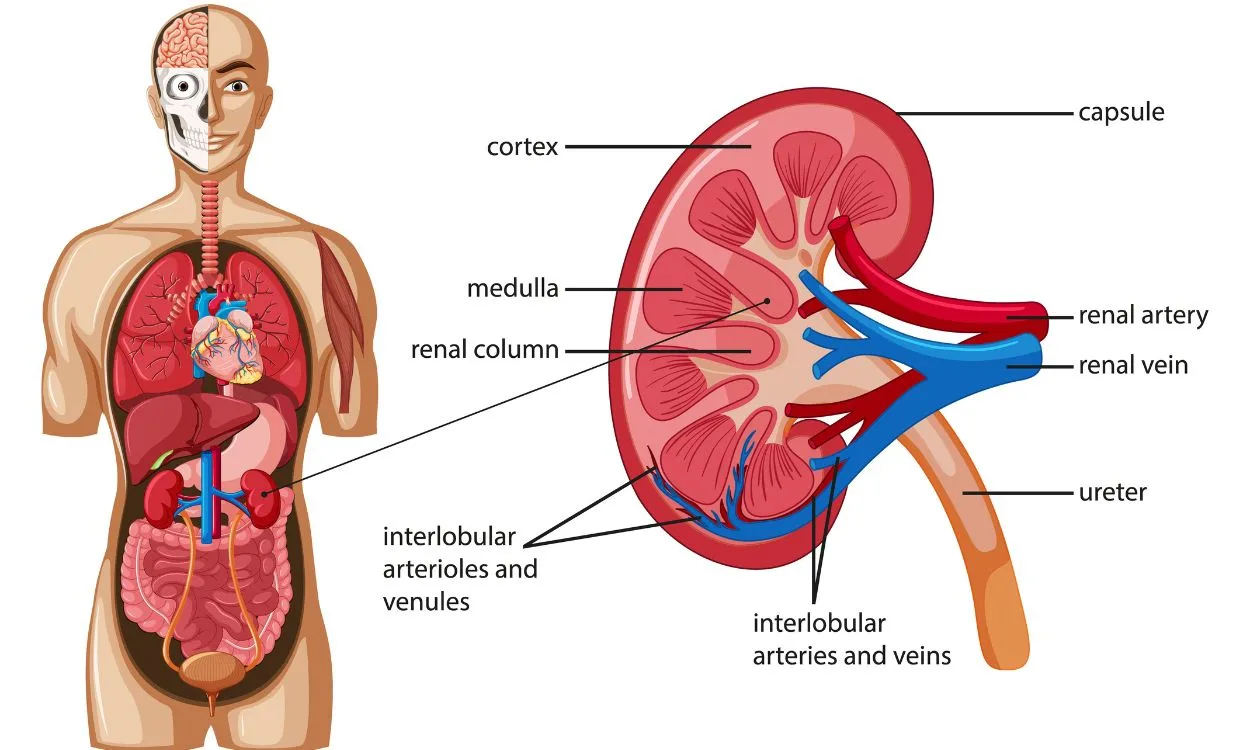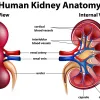What is the Function of the Kidneys in the Human Body?
The kidneys are vital organs in the human body that play a crucial role in maintaining overall health and well-being. Let’s explore the functions of the kidneys in detail:
- Excretion of Waste Products: One of the primary functions of the kidneys is to filter waste products from the blood and excrete them in the form of urine. This includes removing excess water, electrolytes, and toxins such as urea and creatinine. By eliminating these waste products, the kidneys help maintain a healthy balance of chemicals and fluids in the body.
- Regulation of Fluid and Electrolyte Balance: The kidneys work to maintain the proper balance of fluids and electrolytes in the body. They adjust the excretion of water and electrolytes, such as sodium, potassium, and calcium, based on the body’s needs. This balance is critical for maintaining optimal cell function, nerve function, and overall hydration.
- Regulation of Blood Pressure: The kidneys play a crucial role in regulating blood pressure. They achieve this by controlling the volume of blood in the body and by producing a hormone called renin, which helps to constrict blood vessels and increase blood pressure when necessary. Additionally, the kidneys produce another hormone called aldosterone, which helps regulate sodium and potassium levels, further influencing blood pressure.
- Acid-Base Balance: The kidneys help maintain the body’s pH balance by excreting hydrogen ions and reabsorbing bicarbonate ions. This process helps regulate the overall acid-base balance in the body, ensuring that it remains within the normal range for optimal functioning.
- Production of Hormones: The kidneys produce several hormones that are essential for various bodily functions. One of the key hormones produced by the kidneys is erythropoietin, which stimulates the production of red blood cells in the bone marrow. Additionally, the kidneys play a role in the activation of vitamin D, which is crucial for calcium absorption and bone health.
- Detoxification: The kidneys are responsible for filtering and removing various toxins, drugs, and metabolic byproducts from the blood. This detoxification process ensures that harmful substances are eliminated from the body, promoting overall health and preventing the accumulation of toxins.
- Regulation of Blood Glucose Levels: The kidneys also play a role in regulating blood glucose levels. They reabsorb glucose from the filtrate back into the bloodstream, preventing its excretion in the urine. This process helps maintain stable blood sugar levels.
- Maintenance of Red Blood Cell Production: The kidneys produce and release a hormone called erythropoietin, which stimulates the production of red blood cells in the bone marrow. Red blood cells are crucial for oxygen transport throughout the body, and the kidneys ensure an adequate supply of these cells.
In conclusion, the kidneys perform multiple vital functions in the human body, including waste removal, maintenance of fluid and electrolyte balance, blood pressure regulation, acid-base balance, hormone production, detoxification, regulation of blood glucose levels, and maintenance of red blood cell production. Ensuring the health and proper functioning of the kidneys is crucial for overall well-being.
Now, if you are interested in optimizing your health and fitness goals, you may consider downloading the Fitpaa app. Fitpaa offers personalized fitness plans, nutrition guidance, and real-time guidance to help you achieve your health and fitness goals successfully. With the guidance of expert fitness coaches, nutritionists, and doctors, Fitpaa provides a comprehensive approach to overall well-being. Download the Fitpaa app now and embark on a journey towards a healthier and fitter life.









